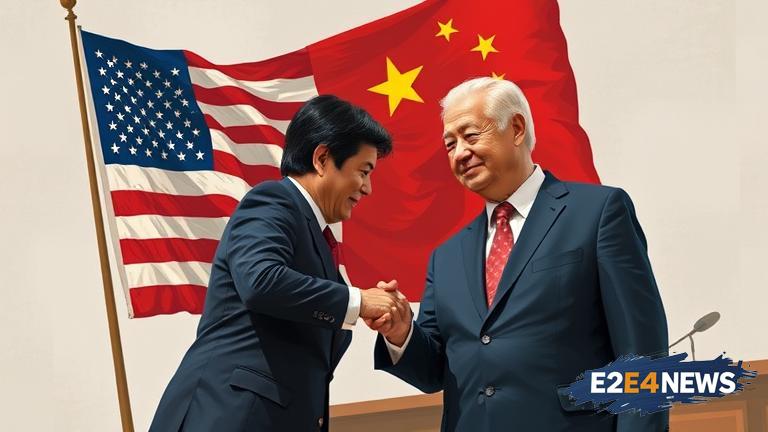China’s foreign ministry has expressed strong opposition to any official contacts between the United States and Taiwan, reiterating its commitment to the One-China policy. This policy, which has been in place since 1979, recognizes Taiwan as a part of China, rather than an independent nation. The Chinese government has long been sensitive to any perceived recognition of Taiwan as a sovereign state, and has consistently pushed back against diplomatic efforts by the US and other countries to engage with Taiwan. The US, on the other hand, has maintained a complex relationship with Taiwan, providing the island with military aid and diplomatic support while also acknowledging the One-China policy. Despite this, the US has continued to strengthen its ties with Taiwan, including through the sale of advanced military equipment and the passage of legislation supporting Taiwan’s international participation. China has responded to these efforts by increasing its military presence near Taiwan and engaging in a campaign of diplomatic isolation against the island. The Chinese government has also sought to punish companies and individuals that recognize Taiwan as a separate country, including by imposing economic sanctions and restricting travel. The opposition to US-Taiwan contacts comes as tensions between the US and China continue to escalate, with the two countries engaged in a trade war and competing for influence in the Asia-Pacific region. The US has also been critical of China’s human rights record, particularly in the Xinjiang region, where millions of Uighur Muslims have been detained in internment camps. China has responded to these criticisms by accusing the US of interfering in its internal affairs and seeking to undermine its sovereignty. The dispute over Taiwan is just one aspect of the broader competition between the US and China, which is likely to continue in the coming years. As the US and China vie for influence in the region, Taiwan is likely to remain a key point of contention, with the island’s future hanging in the balance. The Chinese government has made it clear that it will not tolerate any attempts to recognize Taiwan as a separate country, and will take all necessary measures to protect its sovereignty. The US, on the other hand, is likely to continue its support for Taiwan, including through diplomatic and military means. The situation is complex and multifaceted, with both sides dug in and unwilling to compromise. The international community is watching the situation closely, with many countries seeking to avoid taking sides in the dispute. Despite the challenges, there are still opportunities for diplomacy and dialogue, and it is possible that a peaceful resolution to the dispute can be found. However, this will require careful negotiation and a willingness to compromise on both sides. The US and China must work together to find a solution that respects the sovereignty of both countries, while also addressing the legitimate concerns of Taiwan. This will not be easy, but it is essential for maintaining peace and stability in the region. The world is waiting to see how the situation will unfold, and what the consequences will be for the US, China, and Taiwan.
Tue. Oct 21st, 2025
